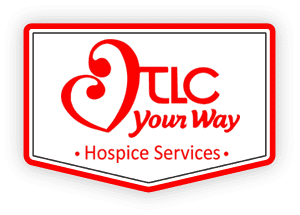Hospice Services in Florence, Marion, Darlington, and Dillon Counties, SC
We provide a wide variety of quality hospice services to meet your needs.
At TLC Your Way Hospice Services, we are dedicated to providing a comprehensive range of services to meet the unique needs of our patients and their families. Our experienced team is here to offer support, comfort, and expert care in a variety of areas.



Our Services:
Quality hospice services that prioritize your comfort and dignity.
Symptom Management for Terminal Illness
At TLC Your Way Hospice Services, we understand that navigating terminal illness is an incredibly challenging journey, and we are committed to providing comprehensive symptom management to ensure the highest quality of care for our patients. Our symptom management approach encompasses not only medical expertise but also extends to emotional, spiritual, and social support, recognizing the holistic nature of health.
Continuous Care
General In-Patient Care
Patient Family Support & Education
Social Work Services
Spiritual Counseling
Bereavement Services
Volunteer Services
Our commitment to compassionate care extends to the heart of our community through our invaluable volunteer services. Our dedicated volunteers play a pivotal role in enhancing the quality of life for individuals facing terminal illnesses and their families. With unwavering dedication and a spirit of kindness, our volunteers offer companionship, emotional support, and assistance with daily tasks, creating a warm and supportive environment. Whether sitting bedside, providing a listening ear, or helping with practical needs, our volunteers contribute to the well-being of our patients and their families.
24-Hour On-Call Services
Respite Care
Physical Therapy
Physical therapy is essential for mobility maintenance to enhance the quality of life for our patients. Our physical therapists create customized plans to help patients maintain strength and function.
Occupational Therapy
Occupational therapy helps individuals maintain independence in daily activities. We offer personalized occupational therapy services to enhance the quality of life for our patients.
Dietary Support
Speech Pathology
Speech pathology is crucial for individuals with communication or swallowing difficulties. Our speech pathologists provide assessment and therapy to maintain these functions to improve quality of life for our patients.
The Following Diagnoses May Qualify:
- Cancer
- Heart Disease
- Renal Failure
- ALS/ MS
- Liver Disease
- Stroke
- Alzheimer’s Disease/ Dementia
- Parkinson’s Disease
- Chronic Obstructive Pulmonary Disease (COPD) / Emphysema
Signs & Symptoms To Look For:
• Functional decline
• Increased dyspnea (difficulty breathing)
• Increased dysphagia (difficulty swallowing)
• Uncontrolled nausea/ vomiting
• Oxygen dependence
• Progressive renal insufficiency
• Frequent hospitalizations
• Bedbound
• Profound weakness
• Progressive weight loss
Generalized Indicators of Terminal Prognosis
- Multiple illnesses with no clear primary terminal diagnosis
- Overall physical and functional decline
- Frequent hospitalizations
- Recurrent infections (pneumonia, UTI)
- Decubitus ulcers
- Loss of will to live
- Dysphagia, aspiration risk
- Not responding to nutritional support
- Serum albumin <2.5 gm/dl
- Dependent for most/all ADLs
- Palliative Performance Scale (PPS) < 40%
- Unexplained weight loss
- BMI <22 kg/m2
Terminal Illness Care:
Here are a few of the chronic terminal illnesses that we provide hospice services for:
ALS (Amyotrophic Lateral Sclerosis)
Rapid Progression in the preceding 12 months:
- Independent ambulation to wheelchair or bedbound
- Normal to unintelligible speech
- Normal to pureed diet
- Independent ADLs to needing major assist with most or all ADLs
Must also have at least one of the following:
- Critically impaired breathing capacity
- Vital capacity <30% of normal
- Significant dyspnea at rest
- Supplemental O2 at rest
- Declines artificial ventilation
- Critical nutritional impairment
- Oral intake insufficient
- Continuing weight loss
- Dehydration or hypovolemia
- Declines artificial feeding
- Life-threatening complications
- Recurrent infections (pneumonia, sepsis)
- Fevers after antibiotic therapy
- Decubitus ulcers
Cancer
- Malignancy with widespread, aggressive, or progressive disease
- Increasing symptoms
- Worsening lab values
- Progressing metastases
- Palliative Performance Scale (PPS) < 60%
- Declines further life-prolonging therapy
- Ongoing physical and/or functional decline despite treatments
- Hypercalcemia > 12
- Cachexia and weight loss
- Recurrent disease after treatment
- Refractory pleural effusions, ascites
- Symptoms of advancing disease
- Pain or Nausea
- Dyspnea
- Abdominal distension
- Enlarging masses
- Fatigue
- End-organ failure (heart, kidneys, liver)
- Decubitus ulcers
Heart Disease
- Symptoms (dyspnea, angina, etc.) despite maximum medical management
- Significant limitations in physical activity
- Cyanosis
- Edema
- Cognitive decline, increased confusion
- Bradycardia and/or tachycardia
- Unintentional weight loss (“cardiac cachexia”)
- NYHA Class IV CHF
- EF <20%
- Recurrent hospitalization for heart-related condition
- History of cardiac arrest
- Treatment resistant dysrhythmias
- Cardiac-related syncope
- Stroke due to cardiac embolism
- Declines invasive cardiac procedures
- Comorbidities limiting cardiac treatments
- Low systolic blood pressure
- Low serum sodium
- Use of O2
Lung Disease
- Disabling dyspnea at rest or minimal exertion
- Little or no response to bronchodilators
- Decreased functional capacity
- “Bed to chair” existence
- Fatigue
- Recurrent pulmonary infections
- Unintentional weight loss
- Cyanosis
- Use of O2—usually O2 dependent
- Resting tachycardia >100/min
- Cor pulmonale and right heart failure due to pulmonary disease
- FEV1 <30%
- O2 sats <88% on RA
- pO2 <55mmHg
- pCO2 >50mmHg
Alzheimer’s / Dementia
- FAST Score >7
- Speech limited to <6 words together
- Can’t walk without assistance
- Can’t sit up without support
- Can’t hold head up without support
- Can’t smile
- Psychosis/severe behavior control issues
- Dependent for ADLs
- Fecal and urinary incontinence
- Unable to bathe or dress independently
- Inability to ambulate independently
- Not responding to nutritional support
- Poor appetite, poor oral intake
- Dysphagia, aspiration risk, pocketing food
- Weight loss
- Serum albumin <2.5 gm/dl
- Comorbidities limiting life expectancy
- Recurrent infections and/or organ failure
- Aspiration pneumonia
- UTI
- Sepsis
- Decubitus ulcers
- Renal failure from dehydration
HIV/AIDS
- CD4 count < 25/mcl HIV RNA viral load >100,000 copies/ml
- Wasting syndrome
- CNS lymphoma
- AIDS dementia complex
- Current active substance abuse
- Refractory Mycobacterium Avium Complex (MAC)
- Multifocal leukoencephalopathy
- Systemic lymphoma
- Visceral Kaposi’s sarcoma
- Renal failure and declining dialysis
- Cryptosporidium infection
- Toxoplasmosis
- Chronic persistent diarrhea
- Serum albumin < 2.5 Age > 50 years
- No antiretroviral, chemotherapeutic or prophylactic drug therapy related to HIV
- Congestive heart failure
- Palliative Performance Scale (PPS)<=40%
Liver Disease
- Refractory hepatic encephalopathy
- Recurrent variceal bleeding
- Refractory ascites despite maximum therapy
- Bacterial peritonitis
- Hepatorenal syndrome
- Elevated BUN/Cr
- Oliguria < 400 ml/day
- Urine sodium < 10 mEq/l
- Cirrhosis and ascites
- Serum albumin < 2.5 g/dl INR > 1.5
- Progressive malnutrition, weight loss
- Muscle wasting and weakness
- Fatigue, decreased endurance
- Requires assist with ADLs
- Continued active alcoholism
- Hepatocellular carcinoma
- Hepatitis B surface antigen (HbsAg) positive
- Jaundice, scleral icterus
Parkinson’s Disease Management
Rapid progression in the preceding 12 months:
- Independent ambulation to wheelchair or bedbound
- Normal to unintelligible speech
- Normal to pureed diet
- Independent ADLs to needing major assist with most or all ADLs
Must also have at least one of the following:
- Critically impaired breathing capacity
- Vital capacity < 30% of normal
- Significant dyspnea at rest
- Supplemental O2 at rest
- Declines artificial ventilation
- Critical nutritional impairment
- Oral intake insufficient
- Continuing weight loss
- Dehydration or hypovolemia
- Declines artificial feeding
- Life-threatening complications
- Recurrent infections (pneumonia, sepsis)
- Fevers after antibiotic therapy
- Decubitus ulcers
Multiple Sclerosis
Living with multiple sclerosis presents unique challenges. Our MS support services aim to improve mobility, manage symptoms, and provide emotional assistance to individuals and their families.
Renal Failure
Managing renal failure is a complex process. Our team offers specialized care to optimize kidney health and overall well-being.
Tel Us More About How We Can Help You.
Our Mission
TLC Your Way Hospice Services prioritizes our patients’ comfort and dignity. We are here to support patients and families throughout the end of life, with a care-driven focus on all aspects of quality of life.
